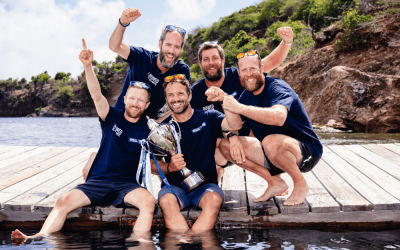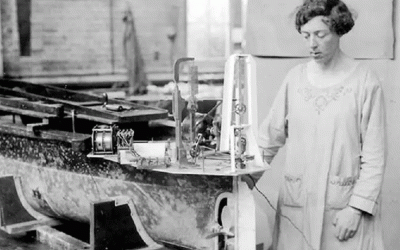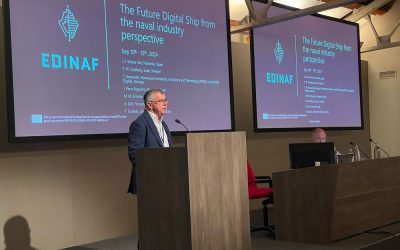A proposal by industry-led initiative Maritime Research and Innovation UK (MarRI-UK) seeks to bothdramatically alter the UK’s reliance on road haulage and establish the country as a frontrunner of maritime innovation, its representatives tell The Naval Architect.
Jointly developed in 2020 by BAE Systems, Babcock, BMT, Lloyd’s Register (LR), Shell, QinetiQ, as well as the University of Newcastle, Southampton, Strathclyde and University College London, the Zero-carbon Costal Highway (ZCH) proposal comprises parallel development of a newbuild fleet and the coastal highway it will operate on.
Specialised smaller-scale, technologically advanced shipbuilding and global leadership in small scale naval autonomy, are just a few strengths MarRIUK regards as proof of the UK’s existing maritime expertise and its opportunity to scale up and exploit the ZCH concept. “The UK must drive forward its high-value research and industrial capability in these areas (as opposed to volume manufacturing), where it has the edge and can compete and win globally,” MarRI-UK’s representatives comment.
The fleet
Central to the coastal highway is the creation of a purpose-built, zero-carbon automated fleet, and MarRI-UK is approaching this task and the wider proposal through three stages of development.
The project will begin in Phase Zero. According to MarRI-UK, this step seeks to use a simulation/model-based approach to establish the economic and operational viability of the concept, which it regards as “an embryonic digital twin”. The outcomes of this formative stage will become the basis for more detailed specification of the project’s future design and development activities.
At the same time, Phase Zero will consider the corresponding suitable routes, shore infrastructure and ongoing links to a local distribution network through UK road, rail or inland waterways.
Phase One focuses on the actual design, construction and demonstration of a zero-carbon coastal freighter. “(It will be) purposely designed to embrace best-in-class hydrodynamics through innovative coatings and air lubrication, environment-assisted power, coupled with a zero-carbon power-train; overseen by high levels of automation and autonomy to improve efficiencies, safety and scheduling, demonstrating the UK as a scientific superpower in this arena,” MarRI-UK states.
More specifically, MarRI-UK’s representatives say that current predictions envisage a vessel of length around 80-100m, able to transport up to 200 standard containers (TEU). But they note that the ship’s technical particulars are still unknown: “The exact specification will be derived from the outcomes of the Phase Zero modelling and simulation activities.”
The proposal’s ambitions grow exponentially in its third step, Phase Two. Building upon the freighter designed in previous stages, Phase Two endeavours to create a 5–10 strong fleet of ships, responsible for transporting a broad range of cargoes in various operating conditions. Due to operate on the coastal highway, this phase also sees the development of the UK’s major and regional ports.
Emissions reduction
One of the initiative’s biggest drivers is a forecasted overall 30–40% reduction of UK emissions deriving from road freight traffic, which MarRI-UK highlights will significantly contribute to the UK Clean Maritime Plan – the UK Government’s Maritime 50 environment route map for transitioning to a zero-emission shipping future. So how has this been quantified at such an early stage in the initiative?
A case study undertaken by an undisclosed member of MarRI-UK compares the emissions output for the shipment of 100 containers from Scotland to London by road, rail, sea and combinations of the three modes.
It considered transportation exclusively by road in comparison with the combined method of road and sea. It was found that the average reduction of kgCO2e/100 containers was 50%. General cargo ships came out on top, providing the maximum reduction of 66% (132,000kgCO2e/100 containers), whereas utilising ro-ros provided the minimum emissions reduction of 23% (47,000kgCO2e/100 containers).
A complete move away from road to a mixture of shipping and rail transport proved to be the most efficient way to minimise CO2 emissions. This method reduced the kgCO2e/100-container value by 155,000, 78% of what the study recorded for pure road transportation.
MarRI-UK emphasises that the above calculations are based on conventionally powered ships. Taking zero-emission vessels into account, such as those planned for the coastal highway, as well as the above study, MarRI-UK anticipates it can reach its ambitious 30–40% target.





